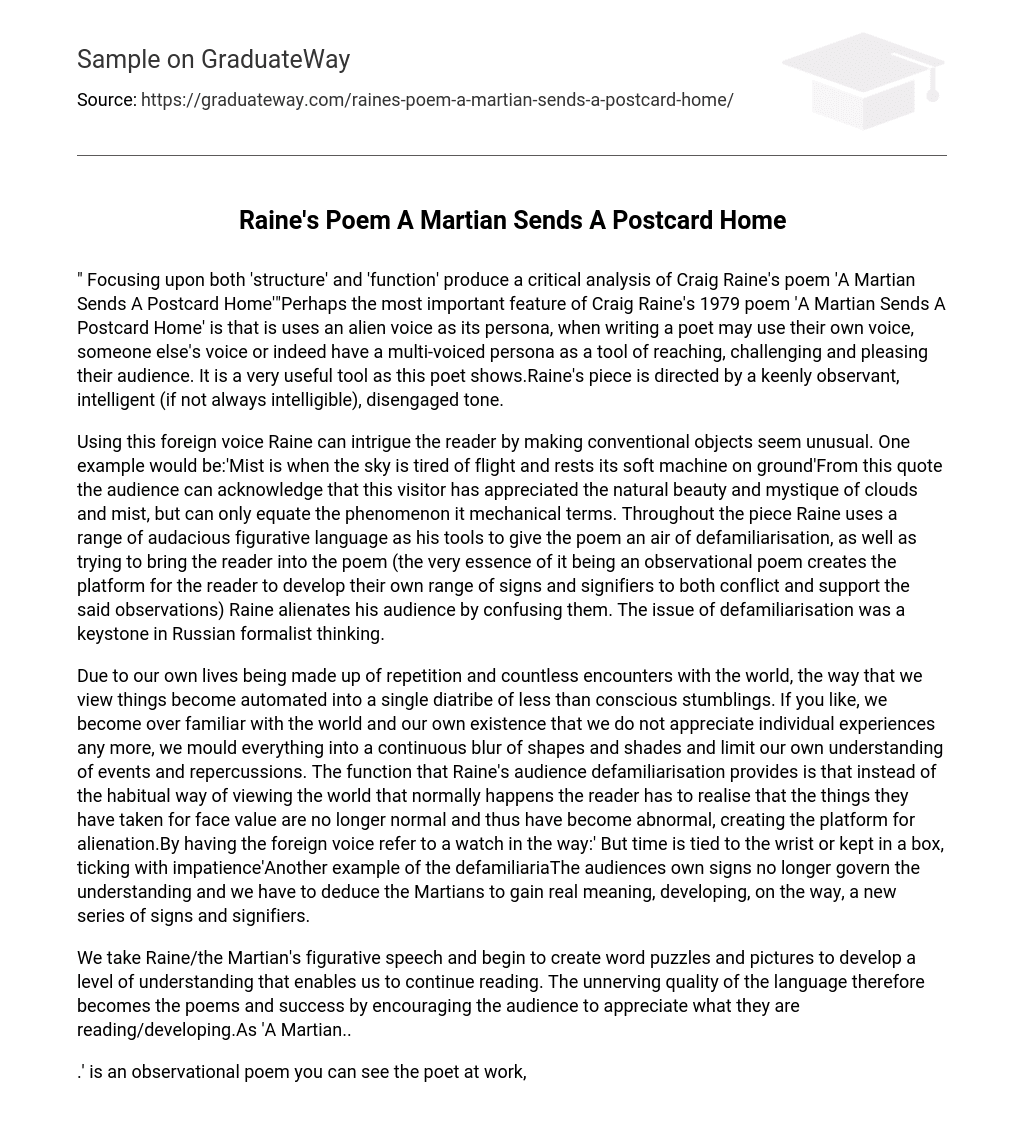This text focuses on producing a critical analysis of Craig Raine’s poem ‘A Martian Sends A Postcard Home’, emphasizing both its ‘structure’ and ‘function’. One notable aspect of this poem is that it adopts an alien persona as its voice, which differs from the usual practice where poets use their own voice or someone else’s voice. This multi-voiced persona serves as a means of connecting, challenging, and pleasing the audience, making it a valuable tool utilized by the poet. Raine’s poem exhibits a keenly observant and intelligent tone, although not always readily understandable or relatable.
Using a foreign voice, Raine captivates the reader by portraying ordinary objects as extraordinary. For instance, he describes mist as “when the sky is tired of flight and rests its soft machine on ground.” Through this quote, the reader understands that this visitor has an appreciation for the beauty and mystery of clouds and mist, but can only understand it in mechanical terms. Throughout the poem, Raine employs daring figurative language to create a sense of unfamiliarity, and to draw the reader into the poem. By observing his surroundings, Raine allows the reader to form their own interpretations, which may both contradict and support his observations. However, this technique can also confuse and alienate the audience. The concept of defamiliarization was crucial in the ideas of Russian formalist thinkers.
The text suggests that our repeated experiences and routines lead us to view things automatically and without conscious thought. We become so familiar with the world and our own existence that we fail to appreciate individual experiences. Instead, we blend everything together into a blur, limiting our understanding of events. However, Raine’s audience defamiliarization breaks this cycle by making us realize that what we’ve taken for granted as normal is actually abnormal, creating a sense of alienation. For example, when the foreign voice refers to a watch as something tied to the wrist or kept in a box, ticking with impatience, it disrupts our usual perception of time. This defamiliarization forces us to question our own understanding and to derive new meanings from the Martian perspective, creating a new set of signs and signifiers.
The use of Raine/the Martian’s figurative language in word puzzles and pictures allows us to better comprehend the text and continue reading. By appreciating this unnerving quality of the language, we can take pleasure in the poems and achieve success in our understanding.
‘.’ is a reflective poem where the poet’s observations are evident, despite the use of an alien voice. It is important to acknowledge that the poet has chosen to document these thoughts and reflections, indicating that they are of significance. Therefore, although some of the meaning may not be immediately apparent, we are still reading the creation of a very human inner source. This raises the question of the origin of the voice narrating the poem. It is possible that Raine titled it “Martian” to highlight the alienating content, while in reality, it could be a human voice referring to objects in their own life.





